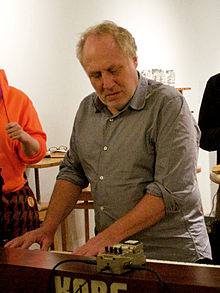
John Zorn is an American composer, conductor, saxophonist, arranger and producer who "deliberately resists category". His avant-garde and experimental approaches to composition and improvisation are inclusive of jazz, rock, hardcore, classical, contemporary, surf, metal, soundtrack, ambient, and world music. In 2013, Down Beat described Zorn as "one of our most important composers" and in 2020 Rolling Stone noted that "[alt]hough Zorn has operated almost entirely outside the mainstream, he's gradually asserted himself as one of the most influential musicians of our time".
Robert Wolfe Quine was an American guitarist. A native of Akron, Ohio, Quine worked with a wide range of musicians, though he himself remained relatively unknown. Critic Mark Deming wrote that "Quine's eclectic style embraced influences from jazz, rock, and blues players of all stripes, and his thoughtful technique and uncompromising approach led to rewarding collaborations with a number of visionary musicians."
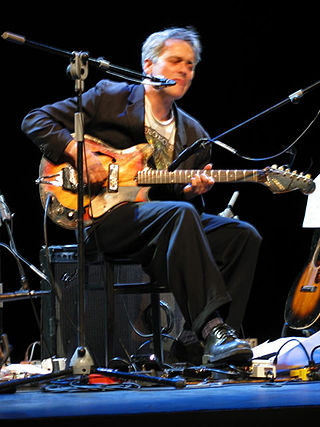
Marc Ribot is an American guitarist and composer.

Masada is a musical group with rotating personnel led by American saxophonist and composer John Zorn since the early 1990s.

Donald Byron is an American composer and multi-instrumentalist. He primarily plays clarinet but has also played bass clarinet and saxophone in a variety of genres that includes free jazz and klezmer.

Wayne Horvitz is an American composer, keyboardist and record producer. He came to prominence in the Downtown scene of 1980s and '90s New York City, where he met his future wife, the singer, songwriter and pianist Robin Holcomb. He is noted for working with John Zorn's Naked City among others. Horvitz has since relocated to the Seattle, Washington area where he has several ongoing groups and has worked as an adjunct professor of composition at Cornish College of the Arts.

Curtis Fowlkes was an American jazz trombonist and singer. He was a founding member of The Jazz Passengers. He had a twin brother James May Fowlkes and his parents were James Ray and Rosa May Fowlkes.

Ned Rothenberg is an American multi-instrumentalist and composer. He specializes in woodwind instruments, including the alto saxophone, clarinet, bass clarinet, flute, and shakuhachi. He is known for his work in contemporary classical and free improvisation. Rothenberg is a graduate of the Oberlin Conservatory of Music. He was a founding member of the woodwind trio New Winds with J. D. Parran and Robert Dick. He has performed with Samm Bennett, Paul Dresher, Fred Frith, Evan Parker, Marc Ribot, Elliott Sharp, John Zorn, Yuji Takahashi, Sainkho Namtchylak, and Katsuya Yokoyama.

Greg Cohen is an American jazz bassist who has been a member of John Zorn's Masada quartet and worked with numerous other noted musicians for over four decades.

Erik Friedlander is an American cellist and composer based in New York City.

Jamie Saft is an American keyboardist and multi-instrumentalist and composer. He was born in New York City and raised a Conservative Jew, and studied at Tufts University and the New England Conservatory of Music.

Mark Feldman is an American jazz violinist.
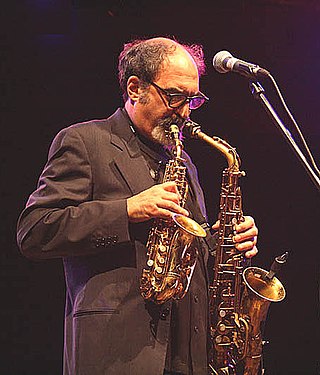
Roy Jay Nathanson is an American saxophonist, composer, bandleader, and teacher. He became the leader and principal composer of the Jazz Passengers, a six piece group that he founded with Curtis Fowlkes in 1987. They have toured Europe many times and played at major festivals in Finland, Germany, Italy, France and Switzerland, as well as the J.V.C. Festival in New York, the Du Maurier Festival in Canada and toured throughout the United States and Canada. The band has recorded eight albums since their debut release.

Filmworks VIII: 1997 features two scores for film by John Zorn released on Zorn's own label, Tzadik Records, in 1998. It features the music that Zorn wrote and recorded for The Port of Last Resort (1998), a documentary directed by Joan Grossman and Paul Rosdy examining the experiences of Jewish refugees in Shanghai and Latin Boys Go to Hell (1997) which was directed by Ela Troyano.
Bill Ware III born William Anthony Ware III is an American jazz vibraphonist.

Shoe String Symphonettes is a 1997 album of film music by Marc Ribot released on Tzadik Records.
This is a discography for guitarist Marc Ribot, including both his own albums and significant recordings to which he has contributed. The year in brackets indicates the date of first release.

This discography features albums released by guitarist Bill Frisell, released recordings of bands and projects he was/is a member of, and albums on which he appears as guest musician. Labels and dates indicate first release.
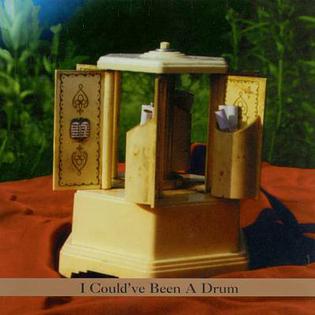
I Could've Been a Drum is an album by the pianist Anthony Coleman and the saxophonist Roy Nathanson, released on the Tzadik label in 1997.
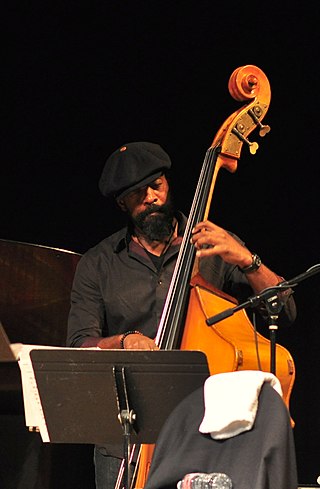
Bradley Christopher Jones is an American jazz bassist who performs on both bass guitar and double-bass.
